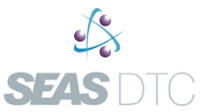Testimonials

Besides its core activities in civil launcher and deterrence, ArianeGroup has developed a diversified portfolio of products and services in other markets: nuclear, airport management, critical infrastructures …
We are conducting several projects within the Smart City framework, and have been looking for partners. We initiated discussions with ThinkTank Maths as their extensive skills in ML/AI would be extremely relevant to some of our projects. We identified the Airport Performance Management system as an ideal case for a partnership between AGS and TTM.
ArianeGroup is developing a software tool called ARAMIS, aiming at improving the performances of airports both on the land-side and on the air-side. The software takes into account multiple sources of data (weather, incoming traffic, passenger load, available resources …) to predict the performances of the airport and optimize the allocation of resources. Airports are now looking at smarter systems able to take advantage of the large quantity of data available and improve the quality of predictions. ThinkTank Maths was identified as a company having advanced technical skills and able to work in an innovative way in an environment where out-of-the-box thinking is a big advantage (for example, adding additional sensors to collect information beyond the existing data set).
A pilot case with an airport has been identified …. We are still in the negotiation phase with the airport team. The objective would be for TTM to develop an optimization module that would be integrated with ARAMIS. Upon success of the case, the module would become part of ARAMIS and deployed in other airports.
Yoann Duriaud, Space Infrastructures, Program Manager – ArianeGroup
In addition, TTM and ArianeGroup have recently initiated discussions for other opportunities of collaboration in space R&T projects.

ConocoPhillips Skandinavia AS and ThinkTank Maths Limited have entered into a new R&D agreement to continue the development of an innovative, ‘augmented intelligence’ geo-steering decision-support software, which aims to support drilling operations in the Ekofisk field on the Norwegian continental shelf.
Public Statement, 18th January 2019
Background:
ThinkTank Maths Limited is an established and recognised provider of innovative operational solutions based on its unique mathematical research and data analysis capabilities in several high-performance Engineering sectors; aeronautics, defence, space, transport and oil and gas.
ConocoPhillips Skandinavia AS carries out exploration and production of oil and gas on the Norwegian Continental Shelf. ConocoPhillips Skandinavia AS is both an operator and a licensee in several producing fields on the Norwegian Shelf.

ThinkTank Maths’ fundamental research in quantum game theory uncovered disruptive approaches to collaboration between autonomous systems.
A very difficult challenge in current autonomous systems research is getting groups of robots, unmanned air vehicles or software agents to work together collaboratively without human intervention. Many such problems can be studied using the mathematics of game theory.
However, game theory relies on the concept of a Nash equilibrium, a set of most desirable behaviors for all players of the game. Suitable Nash equilibria may not exist. Indeed, in the well-known Prisoner’s Dilemma game, the best strategy for the players is to avoid collaboration. In addition, Nash equilibria can be extremely difficult to compute, making it nearly impossible to implement game theory -based collaboration in practice.
Recently, mathematicians and theoretical physicists have begun to study quantum games, in which the players make their moves using the kinds of quantum devices used in quantum cryptography and quantum computers. Simple known examples of such games exhibit higher levels of co-operation than their “classical” equivalents.
Given this fact, ThinkTank Maths (TTM) decided to find out what benefits near-future quantum technology could bring to autonomous system collaboration.
Through an original approach to the foundations of both quantum mechanics and game theory, TTM created a novel mathematical framework for quantum games that went far beyond the existing literature. This allowed TTM to prove that for many quantum games, easily computable equilibria always exist.
ThinkTank Maths’ findings also made the analysis of large multiplayer quantum games possible (with an arbitrary number of players and moves) — and provided new ways to tackle problems like spacecraft formation flying.
Moreover, ThinkTank Maths realised that quantum games as defined in the academic literature do not, in fact, fully exploit what is perhaps the most intriguing property of quantum systems: entanglement. This led to the next phase of the project, in which TTM extended this basic quantum phenomenon to complex multi-agent systems. One of the results was that agents sharing an entangled quantum resource can coordinate their actions without communication.
Professor Bill Bardo, Technical Director – SEAS DTC (Systems Engineering Autonomous Systems, Defence Technology Centre)

The thermal protection system (TPS) of a spacecraft plays a key role in preventing burn-up during atmospheric entry. A delicate balance must be struck between making the TPS strong enough to withstand the extreme temperatures and making it light enough to increase the possible weight that can be allocated to the payload. This requires an accurate model of the thermal load that the spacecraft experiences during the entry process.
Unfortunately, many of the physical phenomena that accompany an object moving through the atmosphere at hypersonic speeds are highly complex and still not well understood. The resultant extra margin of error built into the TPS renders some space exploration missions outside the realms of feasibility due to the prohibitive cost.
ThinkTank Maths Limited (TTM) addressed the specific problem of understanding the ionisation of atoms and chemical compounds at high temperatures, theoretically described by the Schrödinger equation.
TTM has been asked to carry out fundamental mathematical research into its solution in a computationally efficient manner for the model of the confined Hydrogen atom.
TTM developed two algorithms that compute the required Schrödinger energy levels, by exploiting specific features of the problem.
The advantage of this approach is that, when generalised to more complex molecules, it makes it possible to solve the Schrödinger equation directly, without resorting to the commonly used Born-Oppenheimer approximation, which is known not to be adequate for high-energy atmospheric entry. TTM has performed a theoretical analysis of the computational complexity of the algorithms, which implies that our algorithms should be applicable for atoms and molecules more complex than hydrogen.
Furthermore, TTM has performed some alternative research to address the problems faced by the aerothermodynamics community and has identified a number of directions that would benefit from a more rigorous mathematical approach. These directions have been highlighted for their mathematically interesting formulations as well as their potential utility to the community.
Jose Longo, Head of Aerothermodynamics and Propulsion Analysis Section – European Space Agency

I wish that you are continuing successfully with the valuable mathematics support that is being provided by ThinkTank Maths Limited to the engineering and scientific community!
I would like to thank you very much for the professional engagement and the advanced consulting support that you have provided to my Engineering Department (TEC-M) in ESA over a period of about two decades. The Department that I was heading for 20 years up to my retirement at ESA/ESTEC in Noordwijk, The Netherlands is the biggest Department in ESA with some 600 members, five Divisions, and twenty five sections.
It is appropriate to mention that the support by ThinkTank Maths has been called upon when others have failed to find solutions! I would like to mention two cases of diverse engineering and scientific nature where your engagement has made the difference in finding solutions to complex problems. One problem was related to the identification of deficiencies in satellite thermal mathematical models by mining into various satellite thermal test measurements and in orbit satellite thermal measurements. World class satellite thermal engineers were particularly impressed that you have been able with your advanced mathematical evaluation techniques to identify areas in the mathematical model that required correction and improvement whereas thermal experts had failed earlier to identify such significant shortcomings. Another problem that you managed to solve, where specialists had given up and thought it would not be possible to solve, was coupling electromagnetic effects in high speed supersonic flow. In this application electromagnetic forces are used at the nose cap of the hypersonic vehicle to move the stagnation point away from the surface of the vehicle to reduce the very high temperatures generated during re-entry in the Earth’s atmosphere. ThinkTank Maths specialists were able to couple and solve the equations where top engineers have been unable in spite of a significant effort over some time.
I would like to thank you, and your team for your most valuable support during my period in ESA. I am looking for a continuous collaboration in my capacity as the Technical Director of IABG that I have joined after my retirement from ESA.
Prof. Dr. C. Stavrinidis FREng, Technical Director – Engineering Department (TEC-M), European Space Agency

The methods you developed outperform standard off-the-shelf optimisation algorithms by at least an order of magnitude for the test problem that we provided. I was also tremendously impressed when I visited your office in Edinburgh, where the team presented to me the way they developed the methods from first principles. Rather than relying on a literature search and some tweaking of existing solutions, the team really developed something new from scratch. This was a very interesting experience and the exceptional mathematical aptitude and enthusiasm of the team was clear to see.
James Etchells, Thermal Analysis Engineer – Thermal Analysis and Verification Section (ESA D/TEC-MTV), European Space Agency

The team tackled the problem with an enthusiastic attitude and comprehensive approach. They demonstrated several skills including a reasoned mathematical analysis of the problem and the ability to rapidly prototype a solution. The end result, though produced to a tight time-scale, more than met the expectations. It was sufficient to demonstrate that a viable solution existed and allowed us to pursue a potentially valuable solution.
Simon Brusch, Systems Engineer – Motorola

ThinkTank brought specialist expertise to the team that was not available to us in-house. In a very tight time-scale their findings allowed us to short-cut months of research and gave us the opportunity to leap-frog our competitors. The ThinkTank pathfinder provided us with a clear roadmap for the next phase of the project.
Dr Nick Weston, General Manager – Renishaw Edinburgh

ThinkTank brought specialist expertise to the team that was not available to us in-house. In a very tight time-scale their findings allowed us to short-cut months of research and gave us the opportunity to leap-frog our competitors. The ThinkTank pathfinder provided us with a clear roadmap for the next phase of the project.
Paul Butcher, CTO – Texperts (acquired by KGB – 118 118)
